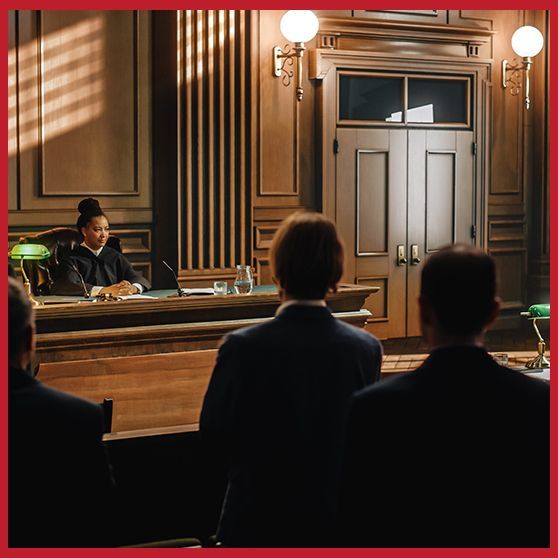Recognizing the Duty of a Post-Conviction Attorney in Seeking Justice After a Criminal Conviction
In the complex landscape of post-conviction lawful process, the function of a post-conviction attorney is pivotal in browsing the course to justice after a criminal conviction. Beyond the boundaries of a test, these lawyers participate in a diverse method focused on revealing brand-new evidence, tough lawful errors, and advocating for their customers' legal rights. The complexities of post-conviction job need a blend of lawful acumen, investigatory skills, and critical believing to decipher the intricacies of a situation and pursue methods that may have been forgotten or underexplored. As the quest of justice extends past the confines of first procedures, the duty of a post-conviction attorney becomes a beacon of hope for those seeking to rectify oppressions and reclaim their legal rights within the legal system.
Post-Conviction Lawyer's Investigative Job
Post-conviction legal representatives involve in precise investigatory job to uncover brand-new evidence, step-by-step errors, or misconduct that can potentially lead to reversing a conviction. This investigatory phase is crucial in the post-conviction procedure as it aims to determine any forgotten details or lawful errors that might have affected the end result of the preliminary test. Post-conviction attorneys dive into instance files, witness testaments, and legal documents with a fine-tooth comb, looking for any kind of discrepancies or abnormalities that could be grounds for allure.
With thorough investigation, post-conviction legal representatives aim to drop light on potential injustices that might have occurred throughout the initial trial. They may perform meetings, speak with professionals, and review forensic proof to build a compelling case for their clients. By scrutinizing every element of the legal proceedings, post-conviction attorneys function tirelessly to reveal any elements that might have affected the verdict. Eventually, their investigatory job plays a pivotal role in the quest of justice and the possible turnaround of wrongful convictions.
Crafting Appeals and Petitions
In the pursuit of justice after a conviction, proficient legal representatives diligently craft allures and applications to existing engaging debates for the reconsideration of lawful choices. Crafting charms and requests needs a deep understanding of the legal system, interest to detail, and strategic thinking. Post-conviction lawyers analyze test documents, determine potential errors or violations of civil liberties, and create lawful disagreements to challenge the conviction or sentence.
When crafting an appeal, legal representatives concentrate on highlighting lawful errors that may have influenced the end result of the situation. They investigate case regulation, laws, and legal precedents to sustain their debates. Requests, on the other hand, might include providing new proof that was not offered during the test or showing changes in the regulation that necessitate an evaluation of the conviction.
Moreover, post-conviction legal representatives need to stick to rigorous step-by-step guidelines and deadlines when submitting appeals and applications. They need to present their debates plainly and persuasively to convince the court to provide alleviation to their clients. Via careful crafting of charms and petitions, post-conviction attorneys aim to secure justice for people who have actually been wrongfully convicted or unfairly punished.

Going After Post-Conviction Relief
Seeking alleviation after a conviction calls for a calculated and diligent technique by experienced lawful specialists. Post-conviction relief incorporates a series of legal devices developed to test the validity of a conviction or sentence (federal habeas corpus north dakota). These avenues include filing activities for a new test, going after charms, seeking writs of habeas corpus, and offering newly uncovered evidence. Post-conviction lawyers play a crucial duty in browsing these complex treatments, making certain that all lawful options are discovered to remedy injustices that might have happened during the test or sentencing phase.
One typical kind of post-conviction relief is submitting a petition for post-conviction alleviation, generally based upon claims of inefficient aid of guidance, prosecutorial transgression, newly uncovered proof, or constitutional infractions. These applications require a complete evaluation of the trial document, lawful research, and convincing campaigning for to convince the court to give alleviation. check this site out Experienced post-conviction legal representatives possess the skills and expertise necessary to identify sensible lawful cases, conduct investigations, and present engaging debates to secure relief for their clients. By carefully seeking post-conviction alleviation, these attorneys aim to remedy losing the unborn babies of justice and promote the principles of fairness and due process in the criminal justice system (Attorney).
Utilizing Forensic Proof
When testing a sentence or sentence, the calculated use of forensic evidence can be a powerful tool in post-conviction lawful process. Forensic proof includes a variety of clinical strategies made use of to check out criminal activities and develop truths in court. Post-conviction attorneys can leverage forensic proof to test the credibility of convictions by offering brand-new scientific findings that were not readily available throughout the original test.

Participating In Sentence Adjustments
Post-conviction attorneys may explore the possibility of sentence alterations as a lawful method to resolve out of proportion or unfair sentences bied far in criminal situations. Sentence modifications involve looking for adjustments to the regards to an accused's sentence after a conviction has happened. These alterations can consist of minimizing the length of a sentence, altering the kind of penalty imposed, or exploring alternative sentencing alternatives.
Post-conviction attorneys can pursue sentence modifications via different legal devices, such as submitting movements for sentence reduction, appealing for thoughtful release, or negotiating appeal offers for reduced sentences. They have to very carefully evaluate the circumstances of the instance, evaluate the lawful premises for seeking an alteration, and present engaging disagreements to the court sustaining the requirement for a revised sentence.
Taking part in sentence modifications calls for an extensive understanding of criminal law, punishing guidelines, and the certain procedures included in seeking post-conviction relief. Post-conviction lawyers play a vital role in promoting for fair and just end results by challenging sentences that are unduly rough or do not align with the concepts of justice.
Final Thought
Finally, the role of a post-conviction attorney is crucial in seeking justice after a criminal sentence. Through investigative job, crafting allures and petitions, going after post-conviction alleviation, utilizing forensic proof, and involving in sentence modifications, these attorneys play a vital function in supporting for their customers and guaranteeing that their legal rights are promoted within the criminal justice system. Their dedication and experience are important in navigating the intricacies of post-conviction process and achieving a fair outcome for individuals dealing with criminal sentences.